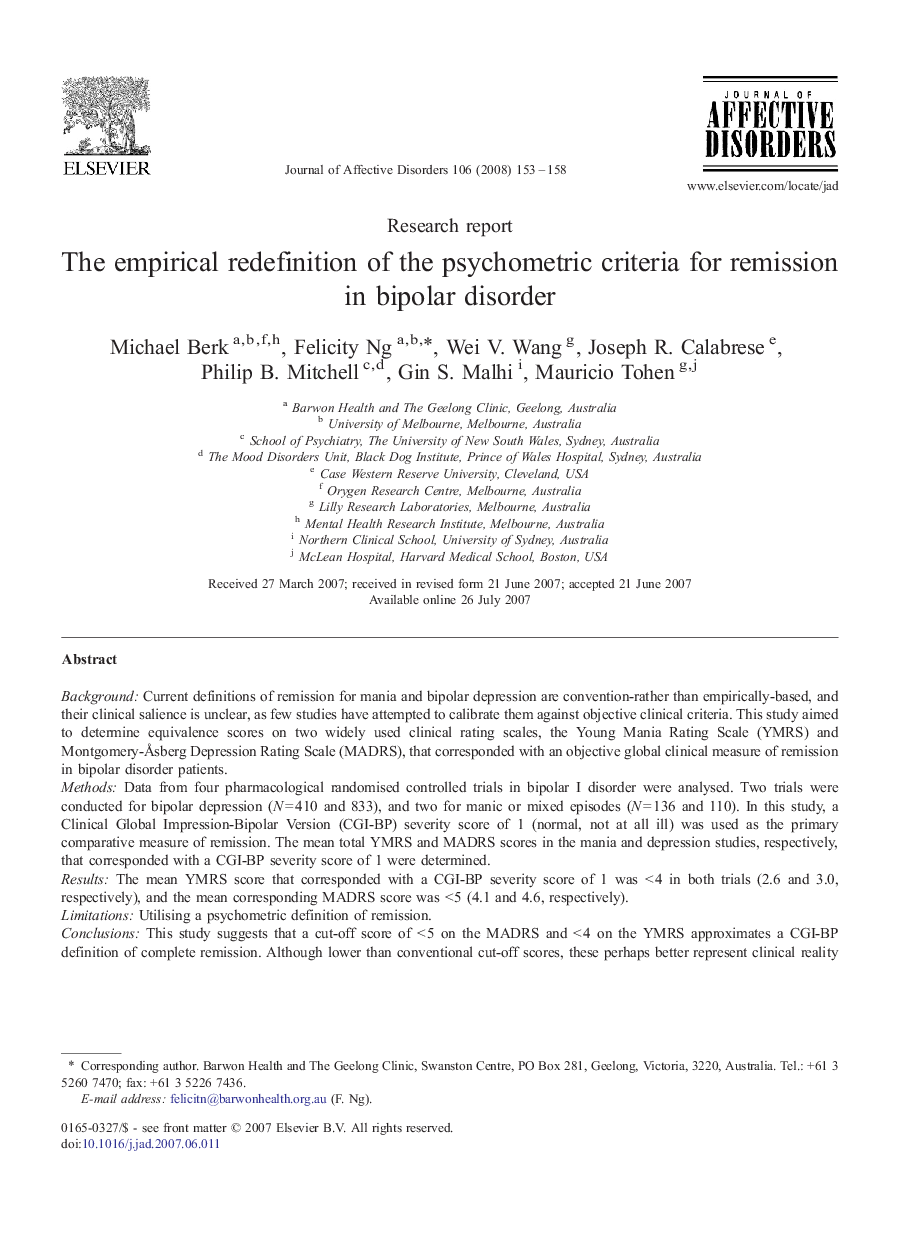| کد مقاله | کد نشریه | سال انتشار | مقاله انگلیسی | نسخه تمام متن |
|---|---|---|---|---|
| 4187681 | 1608215 | 2008 | 6 صفحه PDF | دانلود رایگان |

BackgroundCurrent definitions of remission for mania and bipolar depression are convention-rather than empirically-based, and their clinical salience is unclear, as few studies have attempted to calibrate them against objective clinical criteria. This study aimed to determine equivalence scores on two widely used clinical rating scales, the Young Mania Rating Scale (YMRS) and Montgomery-Åsberg Depression Rating Scale (MADRS), that corresponded with an objective global clinical measure of remission in bipolar disorder patients.MethodsData from four pharmacological randomised controlled trials in bipolar I disorder were analysed. Two trials were conducted for bipolar depression (N = 410 and 833), and two for manic or mixed episodes (N = 136 and 110). In this study, a Clinical Global Impression-Bipolar Version (CGI-BP) severity score of 1 (normal, not at all ill) was used as the primary comparative measure of remission. The mean total YMRS and MADRS scores in the mania and depression studies, respectively, that corresponded with a CGI-BP severity score of 1 were determined.ResultsThe mean YMRS score that corresponded with a CGI-BP severity score of 1 was < 4 in both trials (2.6 and 3.0, respectively), and the mean corresponding MADRS score was < 5 (4.1 and 4.6, respectively).LimitationsUtilising a psychometric definition of remission.ConclusionsThis study suggests that a cut-off score of < 5 on the MADRS and < 4 on the YMRS approximates a CGI-BP definition of complete remission. Although lower than conventional cut-off scores, these perhaps better represent clinical reality and patient expectations. In the context of clinical trials, study end-points may be more difficult to reach with lower cut-offs, but the outcomes achieved are more likely to be clinically meaningful.
Journal: Journal of Affective Disorders - Volume 106, Issues 1–2, February 2008, Pages 153–158